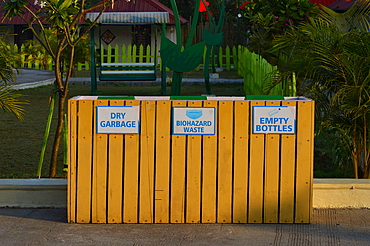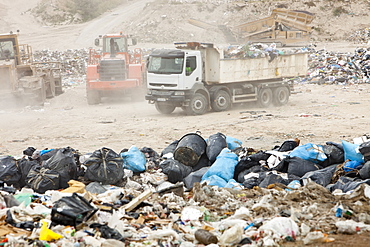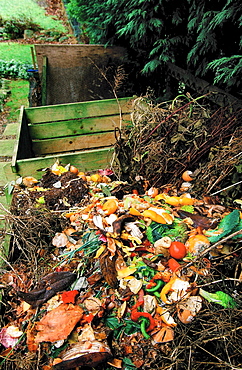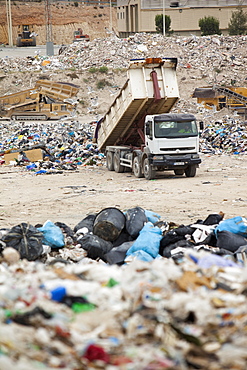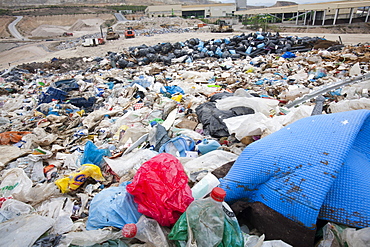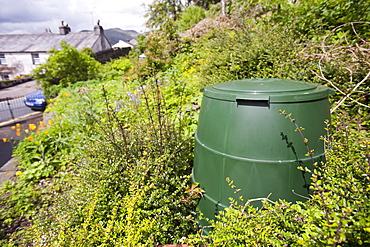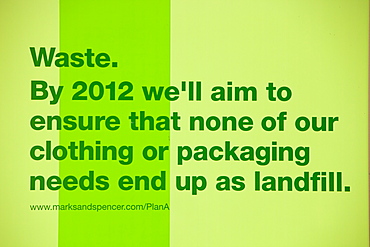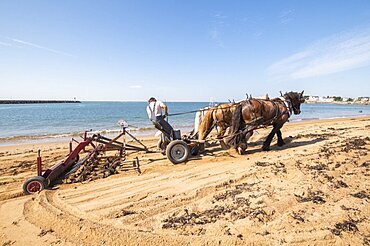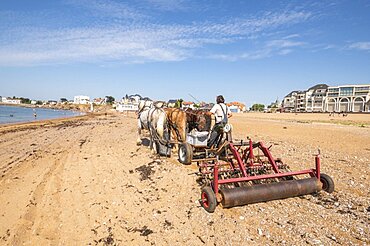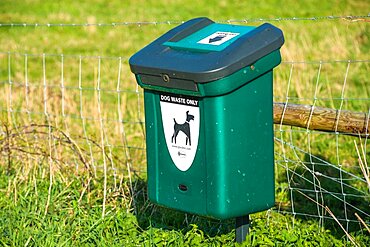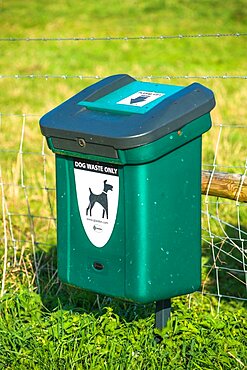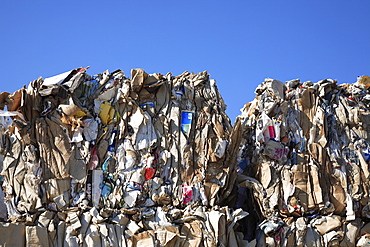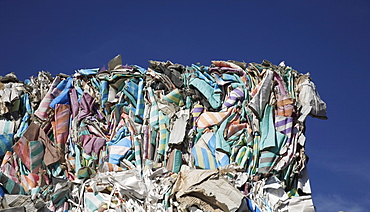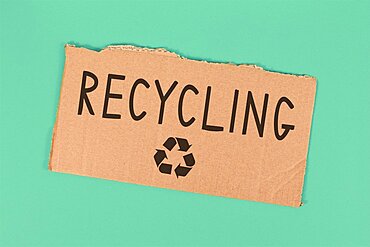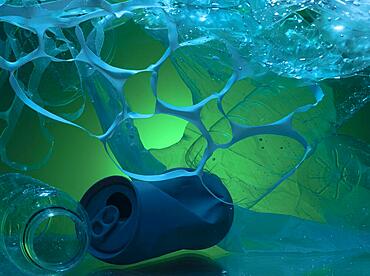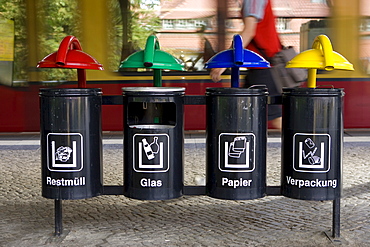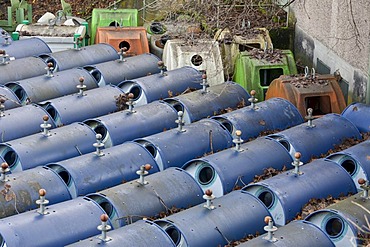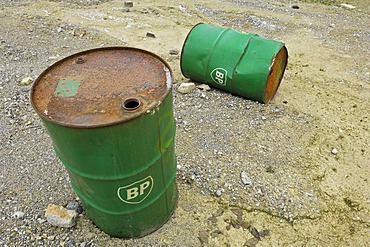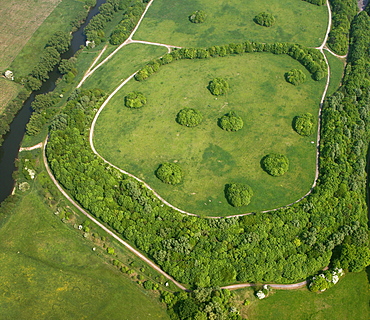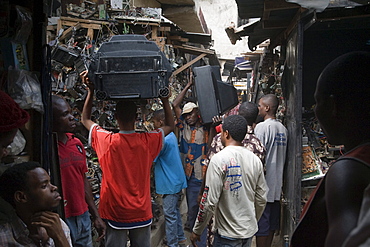Results
1 results found
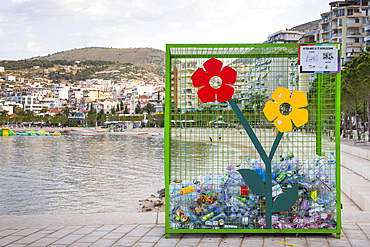
Recycling of plastic and metal bottles, Saranda, port city and seaside resort in Kakome Bay, Ionian Sea Coast, Southern Albania, Europe
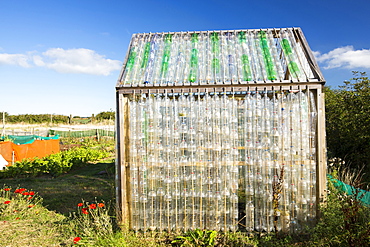
A greenhouse made from waste plastic drinks bottles in the community garden at Mount Pleasant Ecological Park, Porthtowan, Cornwall, UK.
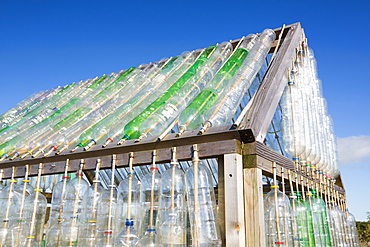
A greenhouse made from waste plastic drinks bottles in the community garden at Mount Pleasant Ecological Park, Porthtowan, Cornwall, UK.
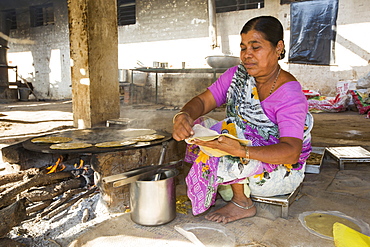
The Muni Seva Ashram in Goraj, near Vadodara, India, is a tranquil haven of humanitarian care. The Ashram is hugely sustainable, next year it will be completely carbon neutral. Its first solar panels were installed in 1984, long before climate change was on anyones agenda. Their energy is provided from solar panels, and wood grown on the estate. Waste food and animal manure is turned inot biogas to run the estates cars and also used for cooking. Solar cookers are also used, and the air conditioning for the hospital is solar run. 70 % of the food used is grown on the estate. They provide an orphanage, schools for all ages, vocational training, care for the elderly, a specialist cancer hospital withstate of the art machinary, and even have a solar crematorium. This shot shows a cook preparing chapatis on a biofuel stove.
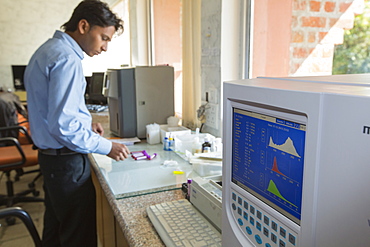
The Muni Seva Ashram in Goraj, near Vadodara, India, is a tranquil haven of humanitarian care. The Ashram is hugely sustainable, next year it will be completely carbon neutral. Its first solar panels were installed in 1984, long before climate change was on anyones agenda. Their energy is provided from solar panels, and wood grown on the estate. Waste food and animal manure is turned inot biogas to run the estates cars and also used for cooking. Solar cookers are also used, and the air conditioning for the hospital is solar run. 70 % of the food used is grown on the estate. They provide an orphanage, schools for all ages, vocational training, care for the elderly, a specialist cancer hospital withstate of the art machinary, and even have a solar crematorium. This shot shows a Hematology Analyzer for analyzing blood in one of the labs in the specialist cancer hospital.
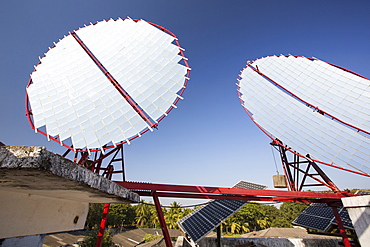
The Muni Seva Ashram in Goraj, near Vadodara, India, is a tranquil haven of humanitarian care. The Ashram is hugely sustainable, next year it will be completely carbon neutral. Its first solar panels were installed in 1984, long before climate change was on anyones agenda. Their energy is provided from solar panels, and wood grown on the estate. Waste food and animal manure is turned inot biogas to run the estates cars and also used for cooking. Solar cookers are also used, and the air conditioning for the hospital is solar run. 70 % of the food used is grown on the estate. They provide an orphanage, schools for all ages, vocational training, care for the elderly, a specialist cancer hospital withstate of the art machinary, and even have a solar crematorium. This shot shows solar panels that focus the suns rays on heat exchangers to boil oil, which is then sent down to the kitchens below to heat the cookers.
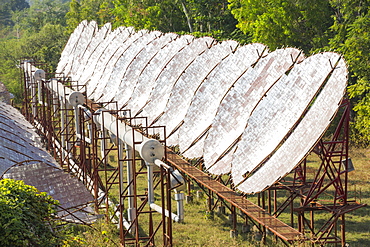
The Muni Seva Ashram in Goraj, near Vadodara, India, is a tranquil haven of humanitarian care. The Ashram is hugely sustainable, next year it will be completely carbon neutral. Its first solar panels were installed in 1984, long before climate change was on anyones agenda. Their energy is provided from solar panels, and wood grown on the estate. Waste food and animal manure is turned inot biogas to run the estates cars and also used for cooking. Solar cookers are also used, and the air conditioning for the hospital is solar run. 70 % of the food used is grown on the estate. They provide an orphanage, schools for all ages, vocational training, care for the elderly, a specialist cancer hospital withstate of the art machinary, and even have a solar crematorium. This shot shows the solar air conditioning for the Ashram's hospital.
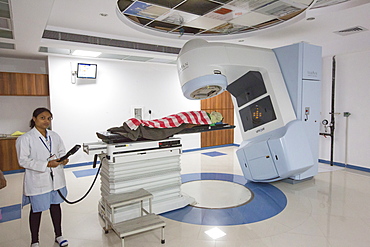
The Muni Seva Ashram in Goraj, near Vadodara, India, is a tranquil haven of humanitarian care. The Ashram is hugely sustainable, next year it will be completely carbon neutral. Its first solar panels were installed in 1984, long before climate change was on anyones agenda. Their energy is provided from solar panels, and wood grown on the estate. Waste food and animal manure is turned inot biogas to run the estates cars and also used for cooking. Solar cookers are also used, and the air conditioning for the hospital is solar run. 70 % of the food used is grown on the estate. They provide an orphanage, schools for all ages, vocational training, care for the elderly, a specialist cancer hospital withstate of the art machinary, and even have a solar crematorium. This shot shows a Varian nuclear proton therapy machine in the specialist cancer hospital.
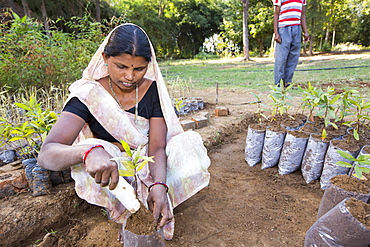
The Muni Seva Ashram in Goraj, near Vadodara, India, is a tranquil haven of humanitarian care. The Ashram is hugely sustainable, next year it will be completely carbon neutral. Its first solar panels were installed in 1984, long before climate change was on anyones agenda. Their energy is provided from solar panels, and wood grown on the estate. Waste food and animal manure is turned inot biogas to run the estates cars and also used for cooking. Solar cookers are also used, and the air conditioning for the hospital is solar run. 70 % of the food used is grown on the estate. They provide an orphanage, schools for all ages, vocational training, care for the elderly, a specialist cancer hospital withstate of the art machinary, and even have a solar crematorium. This shot shows a woman planting trees for onward growth in the Ashrams forests.

The Muni Seva Ashram in Goraj, near Vadodara, India, is a tranquil haven of humanitarian care. The Ashram is hugely sustainable, next year it will be completely carbon neutral. Its first solar panels were installed in 1984, long before climate change was on anyones agenda. Their energy is provided from solar panels, and wood grown on the estate. Waste food and animal manure is turned inot biogas to run the estates cars and also used for cooking. Solar cookers are also used, and the air conditioning for the hospital is solar run. 70 % of the food used is grown on the estate. They provide an orphanage, schools for all ages, vocational training, care for the elderly, a specialist cancer hospital withstate of the art machinary, and even have a solar crematorium. This shot shows the girls school.
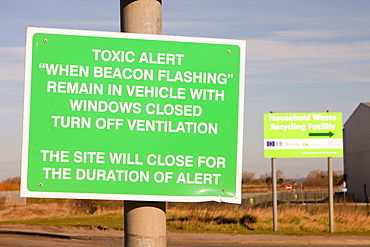
A warning sign about toxic air pollution outside a power from waste incinerator plant at Billingham on Teesside, England, United Kingdom, Europe

A rubbish shaft that allows householders to put their household rubbish down a slot to an underground sorting depot, Seville, Andalucia, Spain, Europe

Green waste being recycled at Jindabyne rubbish dump in the Snowy Mountains, New South Wales, Australia, Pacific
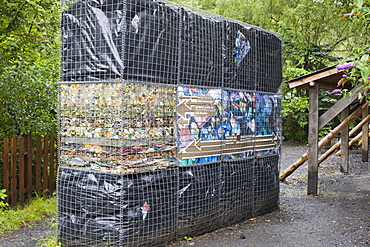
Rubbish thrown out by an average household in one year at the Centre for Alternative Technology in Machylleth, Wales, United Kingdom, Europe
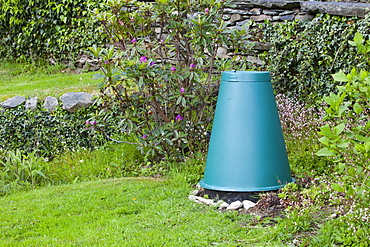
A cone food waste digester in a garden in Ambleside, Lake District, Cumbria, England, United Kingdom, Europe
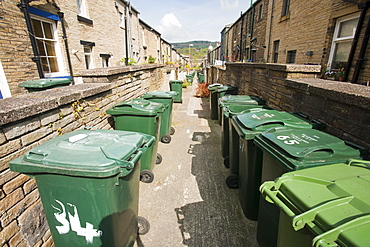
Rubbish bins on a back alley between terraced houses in Saltaire, Yorkshire, England, United Kingdom, Europe
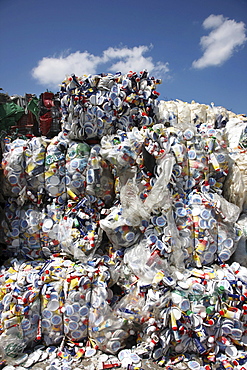
Plastic recycling, PET bottles and plastic rubbish are shredded and pressed, Essen, North Rhine-Westphalia, Germany, Europe
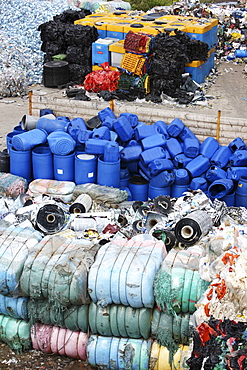
Plastic recycling, PET bottles and plastic rubbish are shredded and pressed, Essen, North Rhine-Westphalia, Germany, Europe
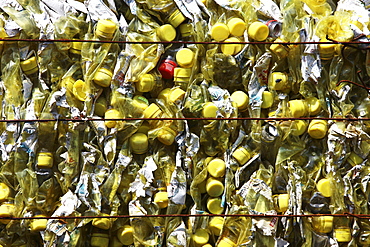
Plastic recycling, PET bottles and plastic rubbish are shredded and pressed, Essen, North Rhine-Westphalia, Germany, Europe

Plastic recycling, PET bottles and plastic rubbish are shredded and pressed, Essen, North Rhine-Westphalia, Germany, Europe
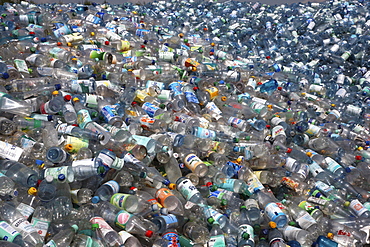
Plastic recycling, PET bottles and plastic rubbish are shredded and pressed, Essen, North Rhine-Westphalia, Germany, Europe
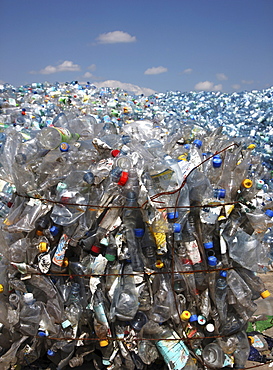
Plastic recycling, PET bottles and plastic rubbish are shredded and pressed, Essen, North Rhine-Westphalia, Germany, Europe
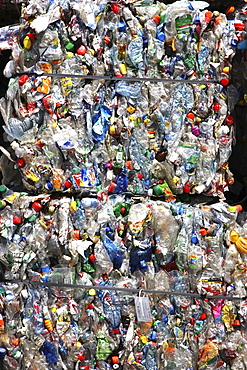
Plastic recycling, PET bottles and plastic rubbish are shredded and pressed, Essen, North Rhine-Westphalia, Germany, Europe

Plastic recycling, PET bottles and plastic rubbish are shredded and pressed, Essen, North Rhine-Westphalia, Germany, Europe
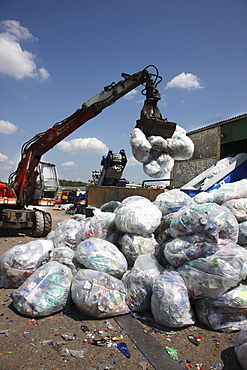
Plastic recycling, PET bottles and plastic rubbish are shredded and pressed, Essen, North Rhine-Westphalia, Germany, Europe
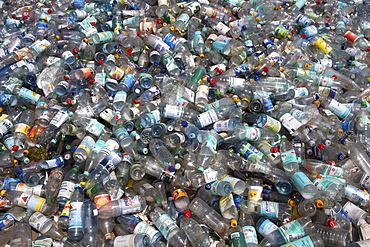
Plastic recycling, PET bottles and plastic rubbish are shredded and pressed, Essen, North Rhine-Westphalia, Germany, Europe

Plastic recycling, PET bottles and plastic rubbish are shredded and pressed, Essen, North Rhine-Westphalia, Germany, Europe
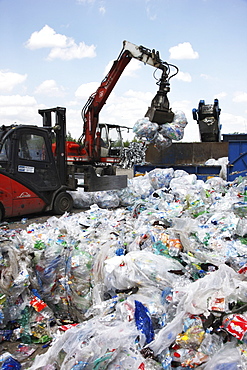
Plastic recycling, PET bottles and plastic rubbish are shredded and pressed, Essen, North Rhine-Westphalia, Germany, Europe
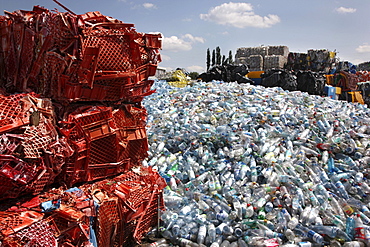
Plastic recycling, PET bottles and plastic rubbish are shredded and pressed, Essen, North Rhine-Westphalia, Germany, Europe
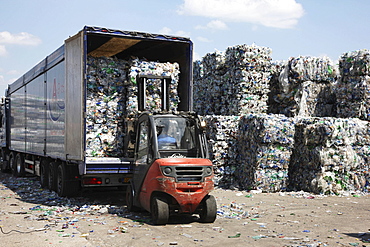
Plastic recycling, PET bottles and plastic rubbish are shredded and pressed, Essen, North Rhine-Westphalia, Germany, Europe
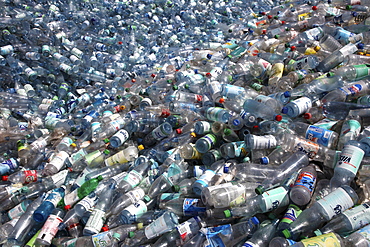
Plastic recycling, PET bottles and plastic rubbish are shredded and pressed, Essen, North Rhine-Westphalia, Germany, Europe
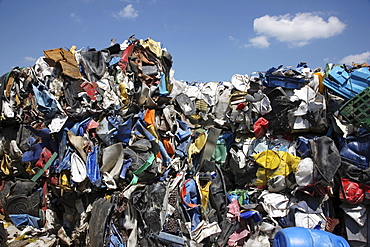
Plastic recycling, PET bottles and plastic rubbish are shredded and pressed, Essen, North Rhine-Westphalia, Germany, Europe
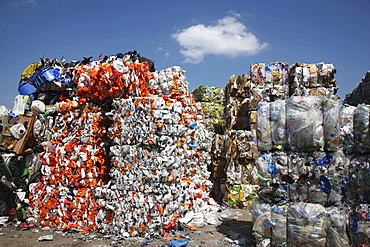
Plastic recycling, PET bottles and plastic rubbish are shredded and pressed, Essen, North Rhine-Westphalia, Germany, Europe
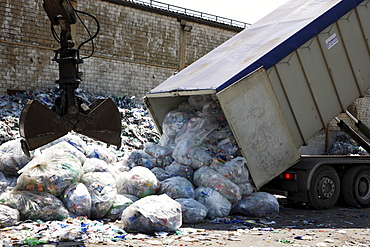
Plastic recycling, PET bottles and plastic rubbish are shredded and pressed, Essen, North Rhine-Westphalia, Germany, Europe
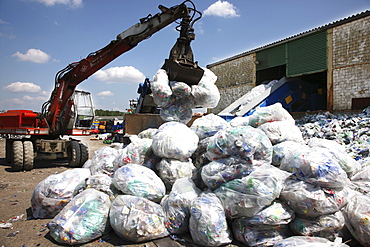
Plastic recycling, PET bottles and plastic rubbish are shredded and pressed, Essen, North Rhine-Westphalia, Germany, Europe

Plastic recycling, PET bottles and plastic rubbish are shredded and pressed, Essen, North Rhine-Westphalia, Germany, Europe
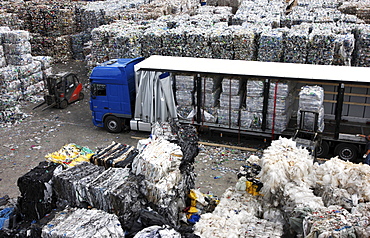
Plastic recycling, PET bottles and plastic rubbish are shredded and pressed, Essen, North Rhine-Westphalia, Germany, Europe
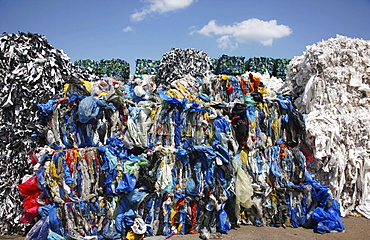
Plastic recycling, PET bottles and plastic rubbish are shredded and pressed, Essen, North Rhine-Westphalia, Germany, Europe
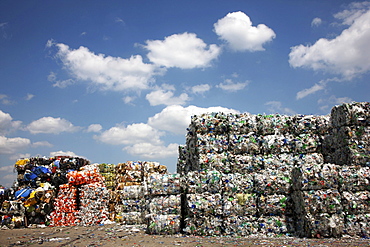
Plastic recycling, PET bottles and plastic rubbish are shredded and pressed, Essen, North Rhine-Westphalia, Germany, Europe

Plastic recycling, PET bottles and plastic rubbish are shredded and pressed, Essen, North Rhine-Westphalia, Germany, Europe
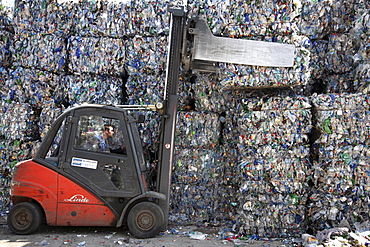
Plastic recycling, PET bottles and plastic rubbish are shredded and pressed, Essen, North Rhine-Westphalia, Germany, Europe
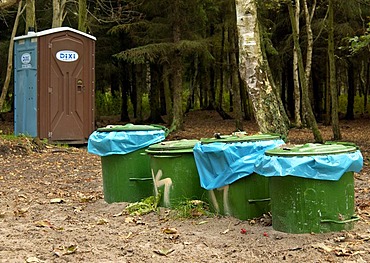
Green dust bins and transportable Dixi toilet in the forest of the National Park Vorpommersche Boddenlandschaft in Mecklenburg Vorpommern, Germany

Aerial view, landfill at a recycling depot with solar panels, Bottrop, Ruhr Area, North Rhine-Westphalia, Germany, Europe
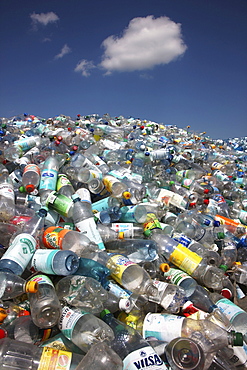
Plastic recycling, PET bottles and plastic rubbish are shredded and pressed, Essen, North Rhine-Westphalia, Germany, Europe
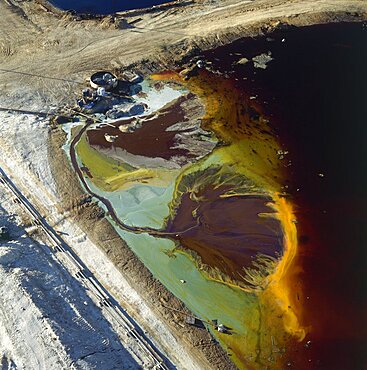
Aerial photograph of chemical wastes at Ramat Hovav national waste disposal site in the northern Negev, Israel
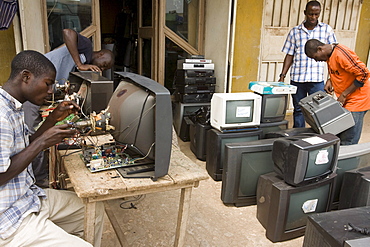
Workers repairing electronics at a shop in Accra, Ghana. The computers are shipped here from Europe and the USA and some are reused but majority are dumped in Ghana.
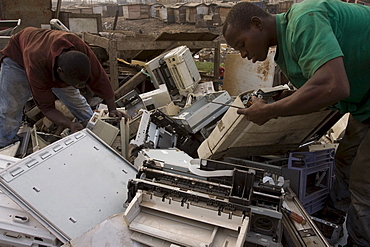
Burning of computer wire and parts to recover copper and other metals in Accra, Ghana. The computers are shipped here from Europe and the USA and some are reused but majority are dumped in Ghana. Poor workers often from the northern poorer region of Ghana do the work and sell the copper to buyers who send the copper to China or India.
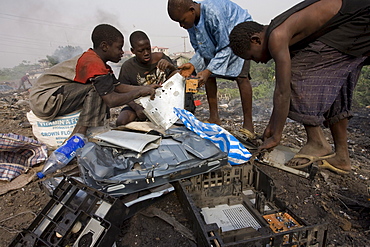
Alaba Market, Lagos Nigeria. Many of the computers here are second hand and shipped from Asia, the USA or Europe for reuse. The small shop dealers buy electronics from the containers and are very good at repairing the goods for sale. Only when material has no value is it sent to nearby dumps. Some kids look through this and try to salvage some coppers wires or aluminum pieces.
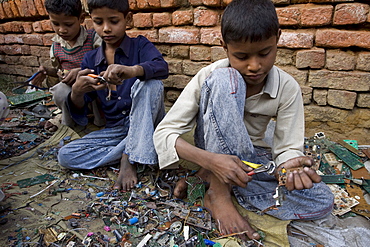
A village named Muftaffabad Loni on the outskirts of New Delhi, India that specializes in recycling circuit boards from electronics. The boards are taken out of electronics in other areas of New Delhi. Some of the boards are burned, some are dipped in sulfuric acid to get the metals separated from the plastics.
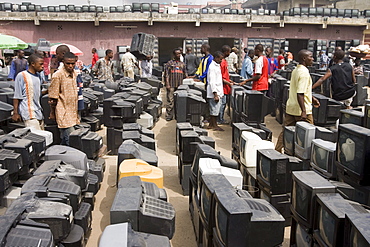
At the Alaba Market in Lagos Nigeria many of the computers here are second hand and shipped from Asia, the USA or Europe for reuse. The small shop dealers buy electronics from the containers and are very good at repairing the goods for sale. Only when material has no value is it sent to nearby dumps. Some kids look through this and try to salvage some coppers wires or aluminum pieces.
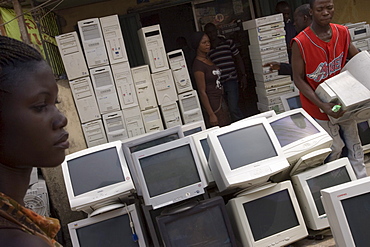
The Computer village at Ikeja neighborhood, Lagos Nigeria. Many of the computers here are second hand and shipped from USA or Europe for reuse.
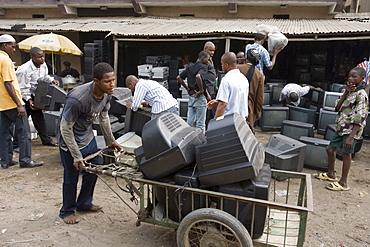
Alaba Market, Lagos Nigeria. Many of the computers here are second hand and shipped from Asia, the USA or Europe for reuse. The small shop dealers buy electronics from the containers and are very good at repairing the goods for sale. When material has no value is it sent to nearby dumps, and young men look for parts or wire that they recycle the metals. However, much toxic material ends up in these dumps in Nigeria.
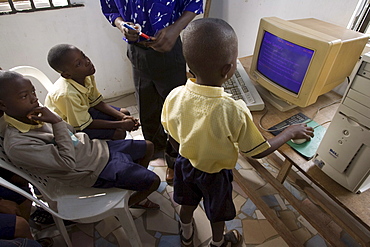
Yinka Ogunsuyi teaches a computer class to 9-11 year olds from the Regency School in Lagos, Nigeria. He gets the computers from a contact in the USA and also buys some in Nigeria. The computer is a Pentium 3 Dell from the USA. Also at the school 2-3 year olds watch the movie "Happy Feat" on a Pentium 4 computer.
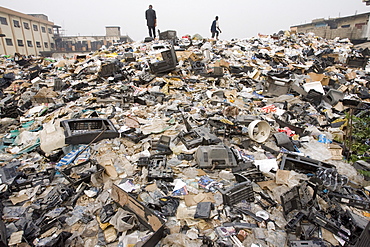
Alaba Market, Lagos Nigeria. Many of the computers here are second hand and shipped from Asia, the USA or Europe for reuse. The small shop dealers buy electronics from the containers and are very good at repairing the goods for sale. When material has no value is it sent to nearby dumps, and young men look for parts or wire that they recycle the metals. However, much toxic material ends up in these dumps in Nigeria.

At CRT Recycling in Brockton, Massachusetts, German Pantoja stands with TVs that he selected and are put in a sea container for shipment to Venezuela, where they will be repaired and sold as used TVs.
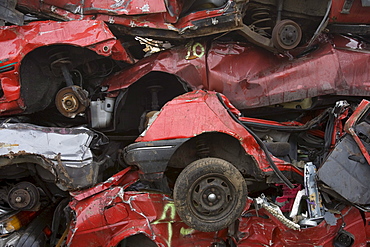
The Mueller-Guttenbrunn Metal Recycling facility in Amstetten, Austria. This is where electronics goods as well as cars and other appliances are sent for recycling under the European Waste Electrics Electronics Equipment (WEEE) Initiative. All electronics goods must be recycled in an environmentally friendly manner.

Electronics recycling facility Metran in Kematen, Austria is where metals and plastics are sorted after the waste is first shredded at Mueller-Guttenbrunn in Amstetten. At a shake table the waste is separated by friction as hard items drop through first because they have less friction. The drum turns and small objects drop through the holes. Large piles of e-waste plastics objects and circuit boards. Avci Bilal walks atop a pile of e-waste that is waiting to be processed at Metran.

Home electronics collection day in Stamford, Connecticut is sponsored by Connecticut Resources Recovery Authority (CRRA). Local residents can bring in old electronics for free collection. The equipment is sent to Amandi who pays about 20 cents a pound to recycle the electronics.
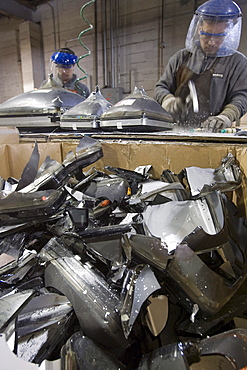
At ElectroniCycle, a recycling company in Gardner, Massachusetts CRT monitors are being broken to be recycled for glass-to-glass recycling.
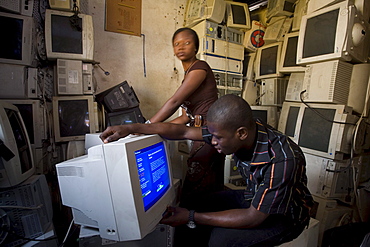
The Computer village at Ikeja neighborhood, Lagos Nigeria. Many of the computers here are second hand and shipped from USA or Europe for reuse.
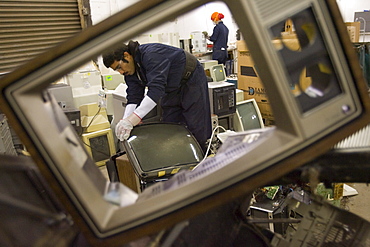
At CRT Recycling in Brockton, Massachusetts, workers look over electronics collected locally to determine what is valuable to recycle in house and what is sent overseas.
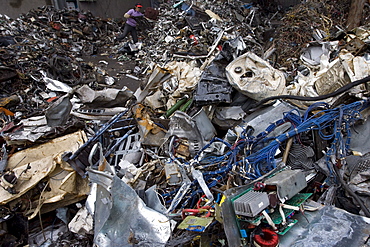
Taizhou Tongtian Electrical Appliance Co. Ltd., Fengjiang Disassembling Industrial Park, Taizhou City, Zhejiang Province, China. Workers are sorting out scraps.
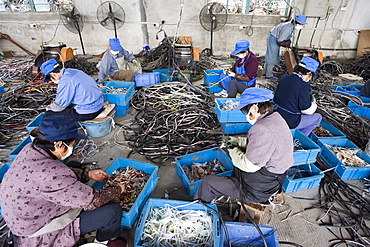
Taicang Port Imported Recyclable Resources Processing Zone, near Shanghai, China. This is a development project of the government to encourage business in recycling of metals and plastics, some of which comes from electronics.
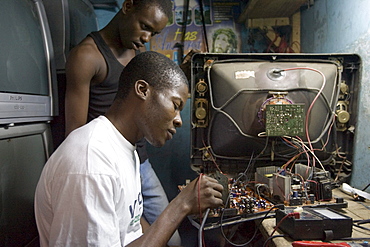
Alaba Market, Lagos Nigeria. Many of the computers here are second hand and shipped from Asia, the USA or Europe for reuse. The small shop dealers buy electronics from the containers and are very good at repairing the goods for sale. Only when material has no value is it sent to nearby dumps.
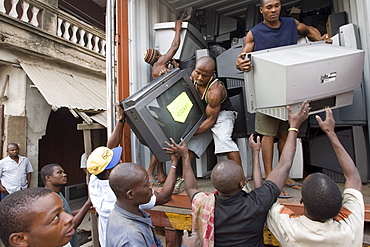
Workers unload televisions at the Alaba Market, Lagos Nigeria. Many of the electronics here are second hand and shipped from Asia, the USA or Europe for reuse. The small shop dealers buy electronics from the containers and are very good at repairing the goods for sale. Only when material has no value is it sent to nearby dumps.
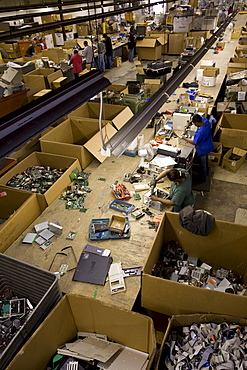
Electronics recycler Global Investment Recovery facility in Salley, South Carolina. The building was formally the Salley Manufacturing Plant, an apparel company that closed and moved operations to Honduras leaving about 100 people out of work. Global Investment Recovery refurbished the building and stated a state-of-the-art electronics recycling operation. They process all of the South Carolina government e-scrap for 21 cents a pound. Scott Dillon cleaning processors, most of which will be sold for reuse. On the right side is hard drives that are wiped 7 times and will be resold. Terry Davis shrink wraps monitors, most of which will be sent overseas for reuse.
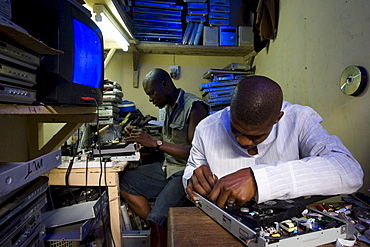
Alaba Market, Lagos Nigeria. Many of the computers here are second hand and shipped from Asia, the USA or Europe for reuse. The small shop dealers buy electronics from the containers and are very good at repairing the goods for sale. Only when material has no value is it sent to nearby dumps.
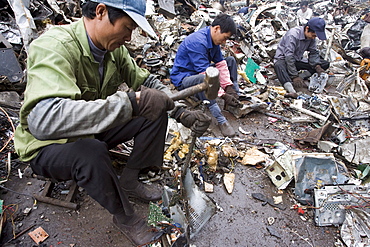
At the Taizhou Tongtian Electrical Appliance Co. Ltd., Taizhou City, Zhejiang Province, China workers are sorting out scrap metals.

A computer training institute in Lagos, Nigeria. The Pentium 2 computers were bought second hand in Nigeria and there are about 16 computers at this location. Students are learning various software programs including typing, Microsoft word and a drawing program. One student in the striped shirt is Alice Itodo.
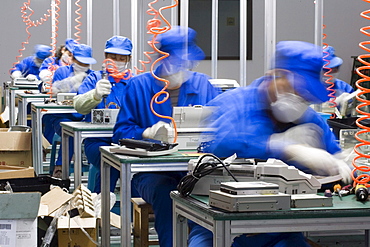
Seven workers are disassembling computers at TES-AMM Shanghai, which was founded on September 21, 2005, currently has 67 employees of which 26 are workers. With an annual production capacity of 10,000 tons, it has only treated 2,000 tons of e-waste from its founding more than a year ago. 'The biggest problem is that there isn't an e-waste recycling channel in China. The biggest chunks of raw materials we get are from government bodies, which are upgrading their equipments, and electronic appliances franchises that are washing out their outdated inventories. We don't have any imported e-waste because that's banned by the government. It takes a worker no more than ten minutes to disassemble a computer, and each worker can deal with between 60 to 70 computers a day,' says Janice Wu, who's the Environment & Quality Management Dept. Manager and Plant Manager Assistant.
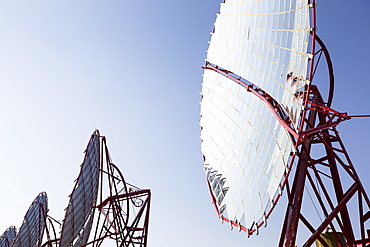
The Muni Seva Ashram in Goraj, near Vadodara, India, is a tranquil haven of humanitarian care. The Ashram is hugely sustainable, next year it will be completely carbon neutral. Its first solar panels were installed in 1984, long before climate change was on anyones agenda. Their energy is provided from solar panels, and wood grown on the estate. Waste food and animal manure is turned inot biogas to run the estates cars and also used for cooking. Solar cookers are also used, and the air conditioning for the hospital is solar run. 70 % of the food used is grown on the estate. They provide an orphanage, schools for all ages, vocational training, care for the elderly, a specialist cancer hospital withstate of the art machinary, and even have a solar crematorium. This shot shows solar panels that focus the suns rays on heat exchangers to boil oil, which is then sent down to the kitchens below to heat the cookers.

